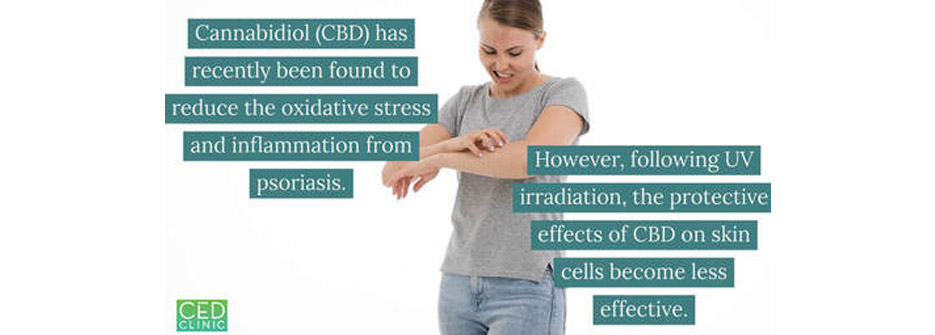Cannabidiol Effects on Phospholipid Metabolism in Keratinocytes from Patients with Psoriasis Vulgaris
In Summary
Endocannabinoid is a group of lipids naturally produced by the body. The endocannabinoid system, which includes mainly endocannabinoids and receptors on the cell surface that they bind to, is widely expressed in skin cells. This system is known to play a vital role in immune responses and also regulate oxidative balance.
Cannabidiol (CBD) is a phytocannabinoid in the plant cannabis which shares structural and functional features with endocannabinoids. Furthermore, unlike other constituents, it does not affect psychological states. Therefore, CBD has recently received great attention as a potential therapy for many diseases caused by impaired immunity and oxidative stress.
One of such diseases is psoriasis, a chronic inflammatory skin disorder, in which skin cells multiply faster than normal and therefore build up into bumpy red patches covered with white scales. UV therapy is a common procedure used to treat this disease. For this reason, before CBD can be integrated into psoriasis treatment regimen, it is clinically important to understand the response of skin cells to CBD in combination with UV irradiation.
In a recent study, scientists found that CBD indeed reduces oxidative stress and inflammation in the skin cells of both healthy individuals and psoriasis patients. Interestingly, however, following UV irradiation, the protective effects of CBD on skin cells become less effective.

